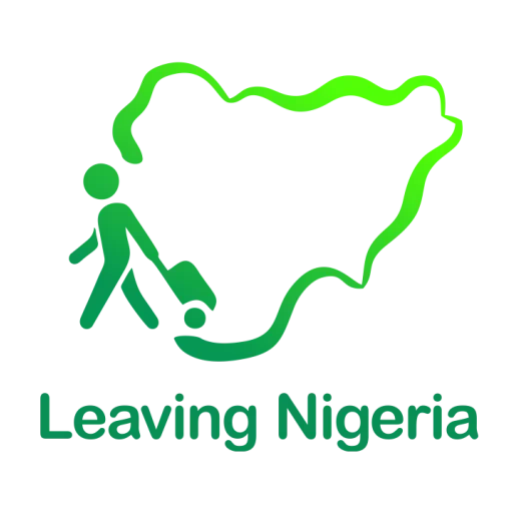That was Christine Vihishima’s reaction when she received her acceptance to attend the St. Petersburg International Economic Forum (SPIEF) in Russia — a global platform where key players gather to shape economic futures.
A multipotentialite in every sense of the word, Christine is a lawyer, humanitarian, serial entrepreneur, and financial literacy advocate known as The Money Mechanic. She’s also the Executive Director of Thinking Cap Literacy Initiative, the convener of the Women Building Wealth Conference, and founder of several businesses, including Shantee’s Lens Media Consult and Rent With Us. With over a decade of community development work under her belt, she has helped thousands navigate their finances confidently and intentionally.
So, how did this dynamic Nigerian changemaker land in one of Russia’s most prestigious economic gatherings?
Who is Christine Vishima Esq?
My name is Christine Vihishima Esq. I am a multipotentialite, a lawyer, a serial entrepreneur, and a humanitarian development practitioner with 13 years of experience in executing community development initiatives. I started my entrepreneurial journey at the age of ten (10) and have been a committed businesswoman since that time up until now. I am passionate about building brands, businesses and people, and I am driven by four core pillars: Quality and equitable access to education (SDG 4), Youth coaching & mentoring, Entrepreneurship and Community Service.
What do you do?
I engage in various activities and currently serve as a Programs Officer for the Well-Life Foundation. Additionally, I am the Executive Director of the Thinking Cap Literacy Initiative. As a Financial Literacy Coach, known as “The Money Mechanic,” I empower Africa’s youth with essential financial knowledge, advice, and strategies to achieve financial freedom and live life on their terms. Over the past four years, I have positively impacted thousands of individuals by helping them take charge of their finances.
I am also the author of “How Not to Get Scammed: A Beginner’s Guide to Investing” and the creator of “My Money Book: A Personal Finance Journal for You.” With a strong background in public speaking, I frequently serve as an event compere.
Currently, I am developing several businesses, including Shantee’s Lens Media Consult, Rent with Us, and The Inyaregh Brand Limited. Additionally, I am the convener of the Women Building Wealth Conference, the first wealth-building conference specifically for women in the Middle-Belt and Northern parts of Nigeria.
Lagos Traffic for London Life: A Nigerian Student’s Brave Move to the UK
How did you get the conference in Russia?
I applied for the St. Petersburg International Economic Forum (SPIEF) under the Friends for Leadership New Generation Program through a link that was shared with me by a friend.
How was the application process?
Interestingly, the process wasn’t very rigorous compared to other applications I’ve filled out in the past. We were simply required to complete an application form that included questions about ourselves, our activities, and the projects we were working on. After that, we just had to wait.
How did you feel when you got selected?
To be honest, I felt numb at first. I had never been selected for anything like this before, so it was surreal for me. I remember that the people I told about my selection were even more excited than I was. Eventually, it sank in, and I truly became grateful for the opportunity I had been given.
How did you access the embassy and obtain your visa? Was it easy, hard, or moderately okay?
Fortunately, since we were considered “top priority,” we received our visas in just one day. The organisation that invited us and sponsored our trip ensured that our visa applications were fast-tracked. Overall, the application process was quite straightforward (unlike some countries, haha). We filled out a form online, which took about 10 minutes (I was shocked, lol). Then we printed it out, visited the embassy, and submitted it along with the necessary documents. We were interviewed by the consular officer, made our payment, and were told to return later that day to collect our visas.
How was travelling to Russia?
It was hectic but not too bad since I wasn’t travelling alone. I had company, and I also had books to read and my laptop to work on. Plus, the airports in Addis Ababa and Istanbul had Wi-Fi, so there was a way to connect to the outside world since we couldn’t leave the airport. Our total travel time was 24 hours for both the outbound and return trips. Our route was Abuja – Addis Ababa – Istanbul – St. Petersburg, with layovers in between each flight (and waiting for the next flight is the worst part, ugh!). We flew with Ethiopian Airlines for the first two legs and then Turkish Airlines for the final leg.
Funny story: after the first flight from Abuja to Addis, I started feeling nauseous during the layover! Whatever they served me to eat on the flight upset my stomach, and I was scarred for the rest of the journey, lol. Thankfully, I didn’t get sick again, and I was very grateful for that. Just so you know, the meals offered on flights tend to vary, but my advice is always to choose the chicken option. It’s usually the safest bet. A word to the wise!
How was Russia?
Russia was an interesting destination. I found it to be quite peaceful, contrary to the common perception that it is a war zone. Having grown up in the crisis zone of Jos, Plateau State, Nigeria, I could relate to this misconception. I visited during the summer, so there was no snow, but it was still quite cold!
The people were generally friendly, although I did encounter a few instances of racism. However, I chose to laugh it off and move on when faced with such experiences. Interestingly, not many people in St. Petersburg speak English, but thankfully, Google Translate came to the rescue!

It was refreshing to be in an environment where things actually worked. While this wasn’t my first trip out of Nigeria, it was a welcome change after such a long time. I appreciated the reliable electricity, free internet, good roads, clean surroundings, and many other functional amenities. Overall, my experience in Russia was amazing.
What did you enjoy most, the people, the food, the weather, the culture or the buildings?
The food… well, by the fourth day, I was tired of it. They don’t eat spicy food, and I just couldn’t deal with that. Breakfast was my favourite meal because there was an unlimited supply of bacon, eggs, oats, and more. However, for the other meals, all I can say is, we thank God! Ultimately, bread really saved me.
Here’s a tip for Nigerians travelling abroad: carry yaji (powdered pepper) in your luggage! Otherwise, you might find it challenging.
As for what I enjoyed, the tour of the city was amazing. St. Petersburg is truly beautiful and serves as the cultural capital of Russia, embodying the country’s rich heritage. The old buildings, which have stood for decades, feature astonishing architecture that gives off a ‘medieval’ vibe. I loved the tours, especially when we visited a palace that is now a museum. It was incredible to see how well-preserved their culture and history are.
I also enjoyed experiencing the phenomenon known as “white nights,” where the sun doesn’t set until almost midnight! At 9, 10, or 11 p.m., it’s still bright outside, and you can see people relaxing in the park, walking their dogs, and just going about their lives. It made it difficult for me to sleep because it stayed unusually bright at bedtime. Overall, it was a great experience, and I absolutely loved it.
What did you learn from the conference, and how will it impact your work moving forward?
The St. Petersburg International Economic Forum (SPIEF) was an eye-opening experience for me. I had the opportunity to witness firsthand the robust economic progress of Russia. I explored their innovations, listened to key players in their economy, and interacted with them by asking pertinent questions about their solutions, which was truly enlightening.
And I can confidently say that SPIEF is an intentional event that showcases the Russian economy on the global stage, highlighting the endless possibilities of doing business with Russia. I learned the importance of governments promoting local businesses and solutions internationally. Russia isn’t seeking foreign aid; instead, it is focused on strengthening its economy independently—something that countries like Nigeria should learn from and adapt.
Additionally, I networked with other New Generation changemakers from across Africa and the world, forging invaluable connections that I believe will extend beyond SPIEF into the future. Moving forward, I plan to put my brand/business on the global map—no more playing small! I will definitely return to Russia to pursue business opportunities (watch out world!) because the potential for mutually beneficial partnerships with Russia is immense. I aim to provide solutions with global relevance, as that is what SPIEF embodies.
What lessons can Nigeria and Nigerians learn from Russia and Russians?
- Invest in young people and give them a chance to contribute to nation-building, as they are the present and future of Nigeria! Many of our counterparts in other countries were young, vibrant, and actively involved in the affairs of their nations. Unfortunately, we find it difficult to relate because, well, it is what it is.
- Nigeria needs to shift from seeking aid to becoming self-sufficient. We are a blessed country, and with visionary leadership, we can certainly compete with other nations.
- Promote innovation! I have seen and experienced things I never thought existed. Technology is changing the narrative, and Nigeria needs to be part of this innovation.
- Nigerian entrepreneurs, including myself, need to stay focused on creating solutions that are globally relevant. We should aim to develop solutions that not only work in Nigeria but can also be scaled and deployed in other countries.
- For context, Russia’s unemployment rate is less than 10%. I think the message here is clear.
- Recycle, recycle, recycle! I was truly impressed by the many innovations around recycling that I saw in Russia. It was refreshing to witness. Nigeria could learn a thing or two from this. We continuously gather polythene bags and plastic bottles at home, and it’s concerning.
- Moreover, I strongly believe that addressing hunger on a significant scale could resolve many of Nigeria’s problems. In Russia, food didn’t seem to be an issue. People often left leftovers after meals, which were discarded immediately. While no nation is perfect, we all recognise that the lack of food has driven many individuals towards theft, robbery, and even terrorism as a means of survival. For a country as blessed as Nigeria, we need to consistently look inward to identify our challenges, find appropriate solutions, and establish a sustainable approach to maintaining those solutions.
Discover more from Leaving Nigeria
Subscribe to get the latest posts sent to your email.































